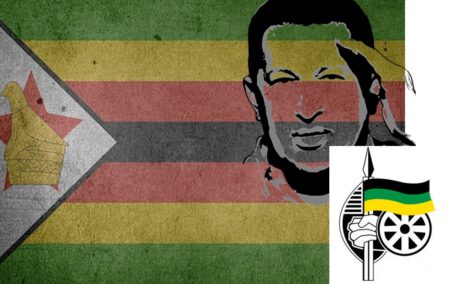Zimbabwe is not issuing passports anymore, at least not many of them – because of a shortage of paper and ink.
Prioity in issuing new passports in Zimbabwe is to be given to those needing them for official purposes, and those recommended by the minister of home affairs. The latter will be deemed ‘special cases’. Others have been told to return in 2021, by which time – it is hoped – the situation will have improved.
This is the latest illustration of Zimbabwe’s severe economic predicament, and the damage that has flowed from it. Zimbabwe’s reckless seizure of land, followed by its government’s drive on all manner of other assets, was paired with repression of political opponents and the destruction of institutions. The embargo on passports is an illustration of what all this has amounted to – not only that the State can no longer discharge some of its most elementary responsibilities to its citizens, but that the consequences of its actions can become inescapable.
In this case, the simple expedient of dissociation, leaving Zimbabwe, becomes a matter of great practical difficulty.
More than a tragedy in itself, it carries the message that when economies are mismanaged – or, more to the point, when they are wilfully looted, and when economic freedom is strangled – this will inevitably undermine people’s civil liberties.
Zimbabwe is by no means alone in this. In Venezuela, the creeping encroachment of the State into the economy under the regime of the late Hugo Chavez rapidly manifested itself in the persecution of his opponents – initially fiddling with institutions and curtailing opportunities, later adding to this outright repression.
In 2016, a decree was announced that made it possible for the government to conscript people for up to 60 days to perform farm labour. Amnesty International said, correctly, that this ‘effectively amounts to forced labour’.
The irony there was pronounced. Venezuelan ‘21st century socialism’ propounded the end to injustice but actually ended in a corvée that a feudal lord or colonial administrator would be familiar with.
Both cases are warnings that the effects of economic decline are not confined to countries’ economies. Where the damage arises from ideological dogmatism the price will be particularly steep, crippling not only the material quality of life, but the quality of one’s citizenship – if, indeed, the concept of citizenship is still operative, and has not been replaced by a form of subjecthood.
Zimbabwe and Venezuela consciously pursued paths aimed at fatally curtailing the capacity of their people to act as free citizens. Declining prospects of an independent livelihood undermine people’s capacity for autonomy, since day-to-day survival comes increasingly to hinge on the goodwill of the State. (In Venezuela, obtaining necessities has become linked to possession of the so-called ‘Fatherland Card’, an identity document which provides the government with access to a storehouse of personal information, and has been decried as a tool for social control.)
These experiences are a disturbing context for the drift of policy in South Africa. For a year and a half, government has threatened to introduce a regime of expropriation without compensation (EWC), while more recently the independence of the South African Reserve Bank and the use of inflationary monetary policy have moved onto the agenda.
This policy direction has also been presented – and not just by their proponents among the country’s political elite – as necessary, forward-thinking, developmental initiatives, necessary for economic growth and inclusion. At times it has been represented quite incomprehensibly as a means for expanding property rights. It will do no such thing; current government policy around land redistribution is squarely statist, and rejects granting private ownership to its beneficiaries. EWC offers nothing but expanded discretion for the State (not always known for its probity) to intervene in the property holdings of the country’s people, be they poor or wealthy.
A ‘publicly-owned’ Reserve Bank meanwhile carries its own risks. Quite notably, Gwede Mantashe – national chairperson of the ruling party – warned about the risks of nationalising it ‘recklessly’. Indeed, it is an institution central to the fate of the country, and its political capture would deal a blow from which the country would struggle to recover. Brian Pottinger, erstwhile editor of the Sunday Times, wrote presciently in his book The Mbeki Legacy a decade ago: ‘Above all, respect the independence of the Reserve Bank, because it is the one institution that marks the difference between a modern State and a grab-what-you-can collective.’
The promise of degraded property rights and violated institutions has an uncomfortable familiarity with what took place in Zimbabwe and Venezuela. Venezuela, for some time, was hailed with the inspirational slogan of ‘another world is possible’.
What Zimbabwe and Venezuela have shown, and what serves as a warning to South Africa, is that economic freedom cannot easily be disentangled from political freedom. Where the former is suppressed, the latter follows close behind. This is not a path that South Africa should risk.
Terence Corrigan is a project manager at the Institute of Race Relations.
If you like what you have just read, become a Friend of the IRR if you aren’t already one by SMSing your name to 32823 or clicking here. Each SMS costs R1. Terms & Conditions apply

